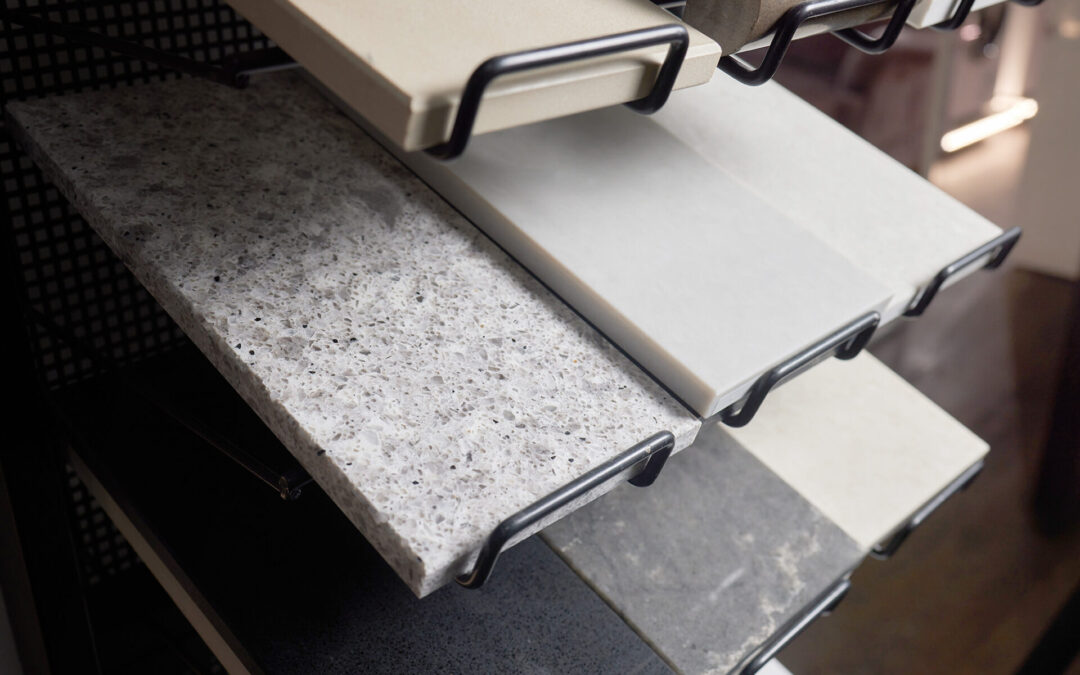Understanding Waterproof vs. Water-Resistant Flooring
Fall and winter often bring rain and snow to the Greater Rochester Area. With the change in season, many customers look for waterproof or water-resistant flooring options. These features offer protection from the mud and slush, plus everyday splashes from cooking, kids, and pets.
How do you know if waterproof or water-resistant flooring suits you and your home? Let’s explore several types of flooring in each category.
What is Waterproof Flooring?
Waterproof flooring is a durable material that cannot be penetrated by surface moisture. It can handle everyday spills and splashes as well as extended water exposure.
However, just because manufacturers label flooring as waterproof doesn’t make it indestructible. If water is not wiped up quickly enough, it can seep through or underneath the flooring surface and damage the subfloor.
Types of Waterproof Flooring
Waterproof flooring comes in several different materials. Explore the characteristics of each below.
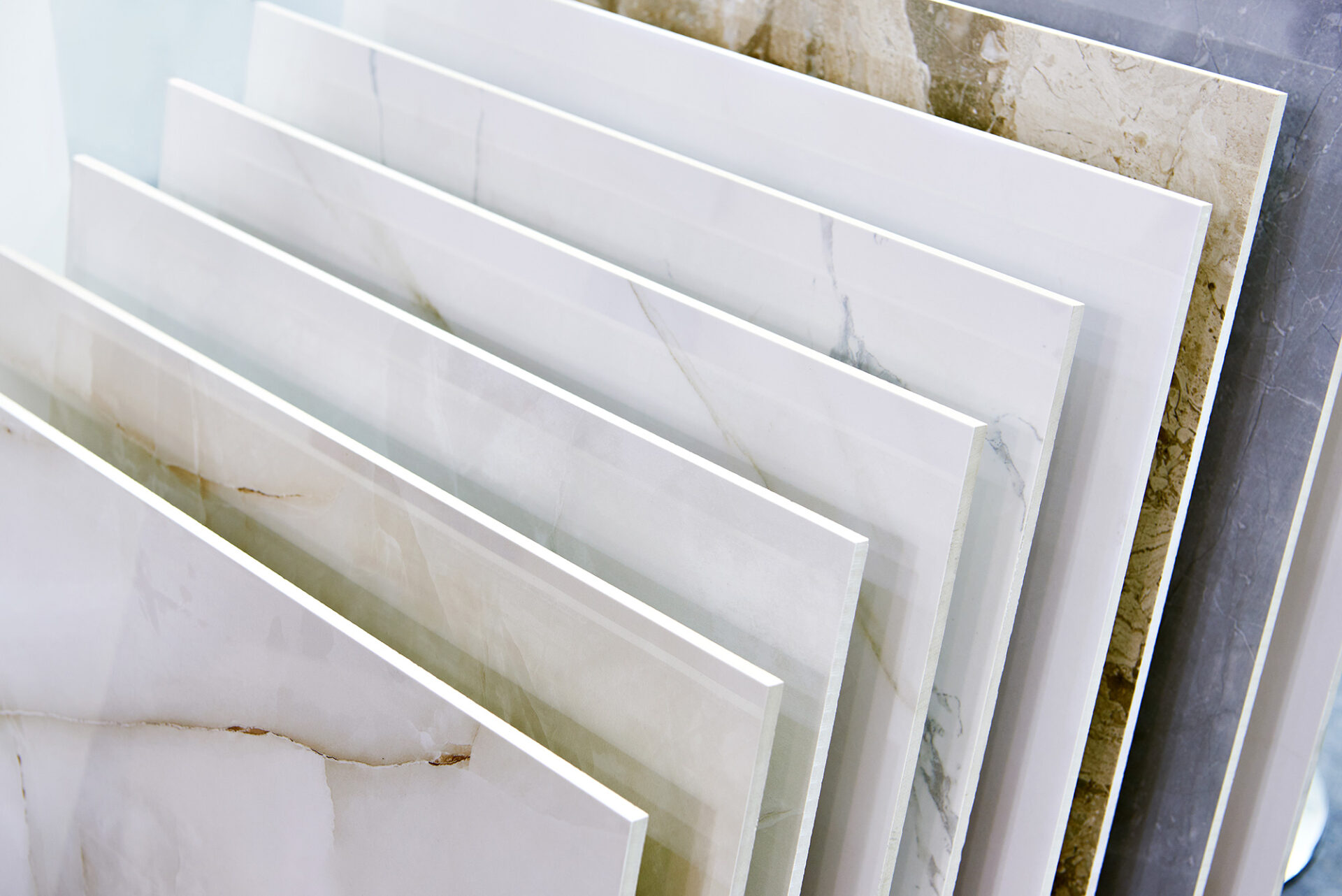
Porcelain Tile
Porcelain floor tiles are available in various styles. Different textures, sizes, shapes, colors, and finishes allow homeowners versatility. Elegant and beautiful, it’s also durable, functional, and low-maintenance.
Porcelain is made from fine clays fired at a much higher temperature than other ceramic products. This makes it dense, non-porous, and has a higher waterproof grade.
One key point to remember is that while porcelain is nearly waterproof, standard grout is not. Be sure to use a penetrating sealer to fill gaps in the grout and repel moisture.
Recommended Rooms
Porcelain tiles are durable and stain-resistant, which makes them a good choice for high-traffic areas. Consider it for entryways and mudrooms. Given its high water resistance, it’s also an excellent option for kitchens and bathrooms.
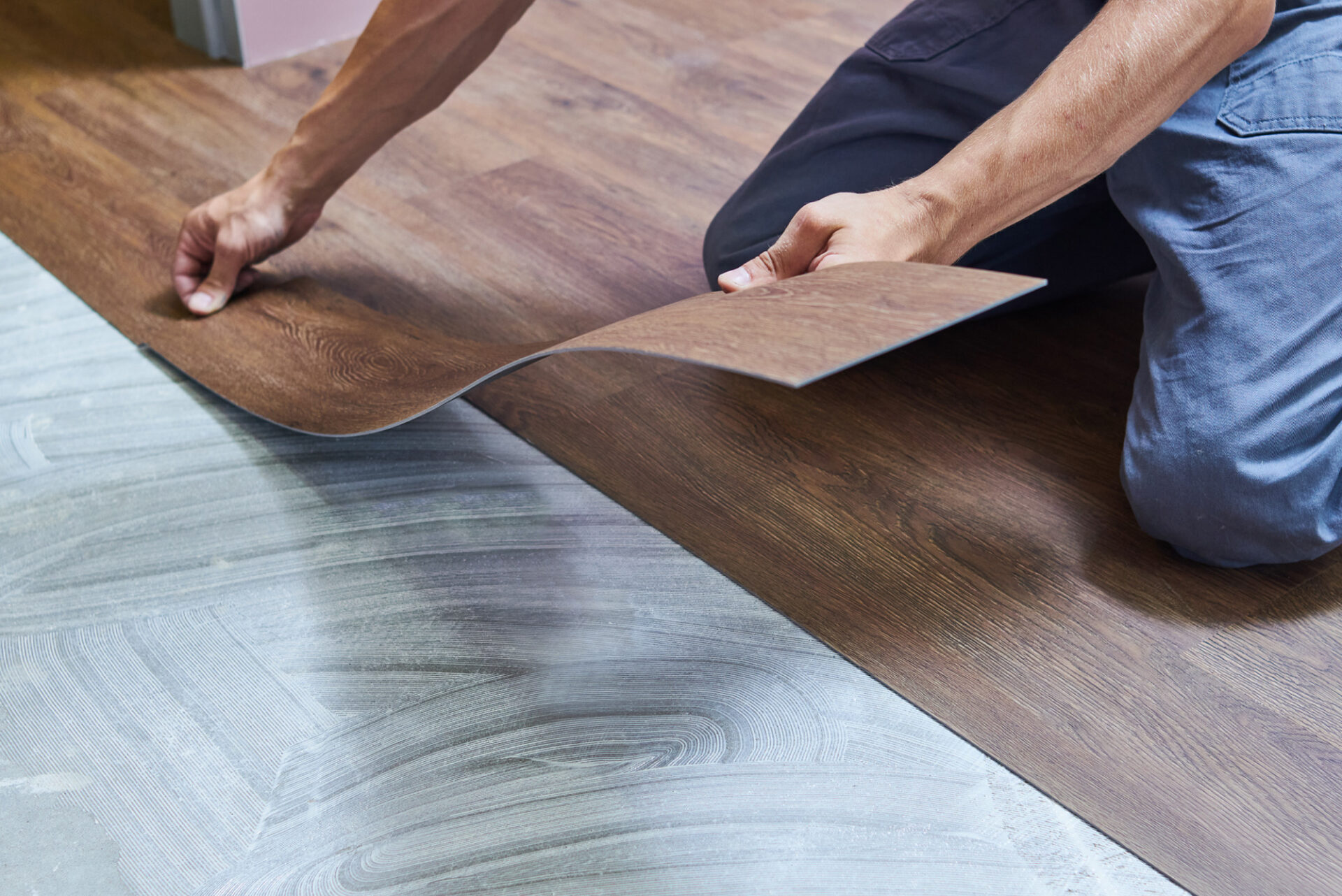
Vinyl Flooring
Vinyl offers many benefits, including durability, longevity, low maintenance, and cost-effectiveness. It is designed to look like hardwood, ceramic, marble, or stone and provides a variety of styles and colors.
Vinyl tile is available in three forms: luxury vinyl tile (LVT), luxury vinyl plank (LVP), and sheet vinyl. It is waterproof because it is made from polyvinyl chloride (PVC), a synthetic plastic.
Vinyl is waterproof, but seams leave the subflooring vulnerable to moisture damage. This can cause the vinyl to discolor, warp, or buckle.
Recommended Rooms
Vinyl floors are durable and waterproof, great for kitchens, bathrooms, playrooms, and basements. Just be sure to wipe up spills and splashes as soon as possible.
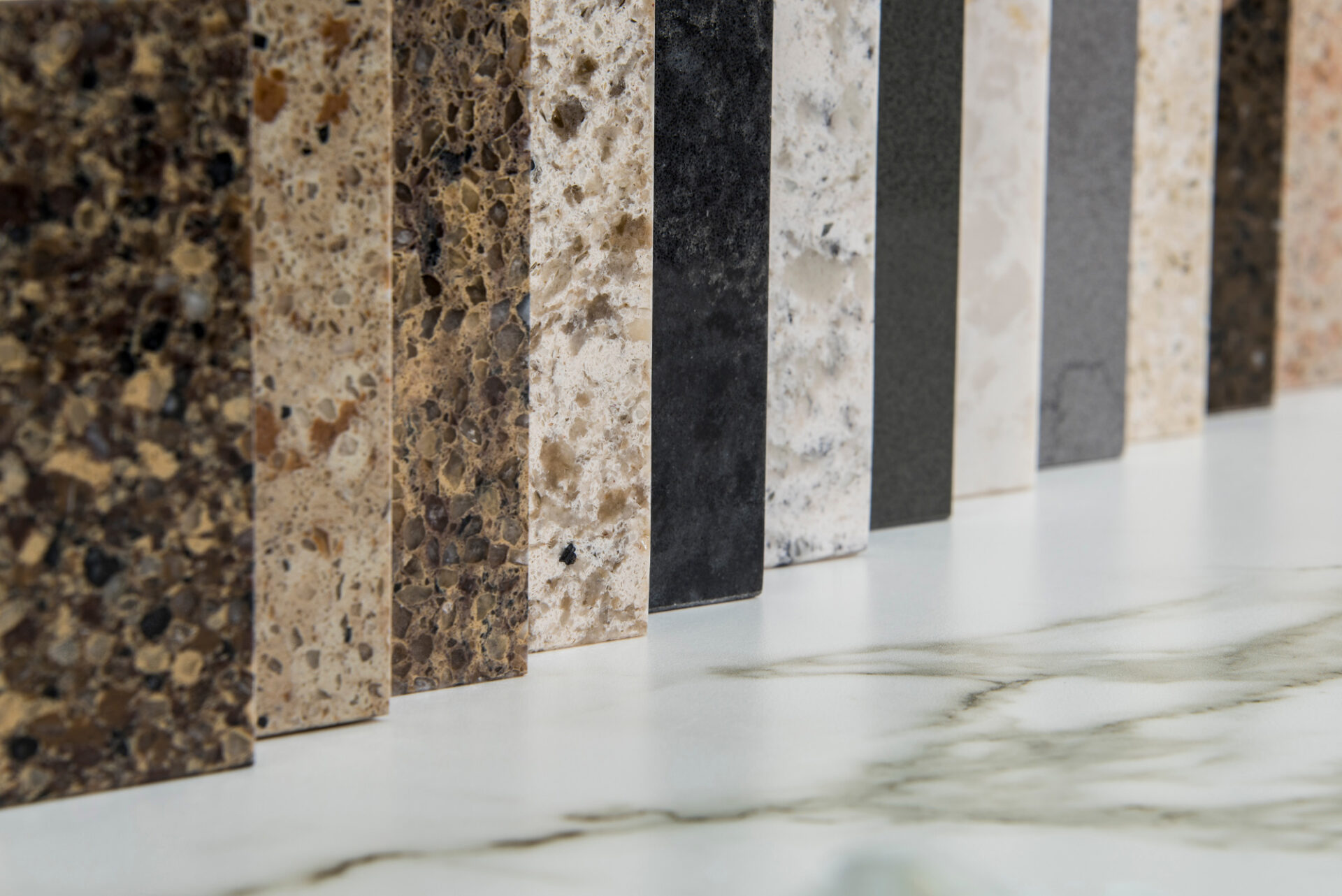
Engineered Stone Tile
Best known as quartz, engineered stone tile is a human-made composite material made from crushed stone and an adhesive or resin. It’s durable, stain-resistant, and easy to clean, and offers homeowners plenty of color and design options.
Due to the bond between the crushed stone and adhesive or resin, a tight, non–porous seal is formed. The result is a waterproof surface that repels water and other stains.
Sealing engineered stone isn’t required. However, it’s recommended to help protect it and increase longevity.
Recommended Rooms
Engineered tile flooring is popular in kitchens and bathrooms. Other common areas include laundry rooms, mudrooms, and entry hallways.
What is Water-Resistant Flooring?
Water-resistant flooring can withstand everyday splashes or minor spills for a short duration. Liquids should be cleaned up promptly. This will prevent soaking into the surface or seeping in between the seams.
Types of Water-Resistant Flooring Materials
Water-resistant flooring is available in several different materials. Explore the characteristics of each below and how to choose the right type for your home.
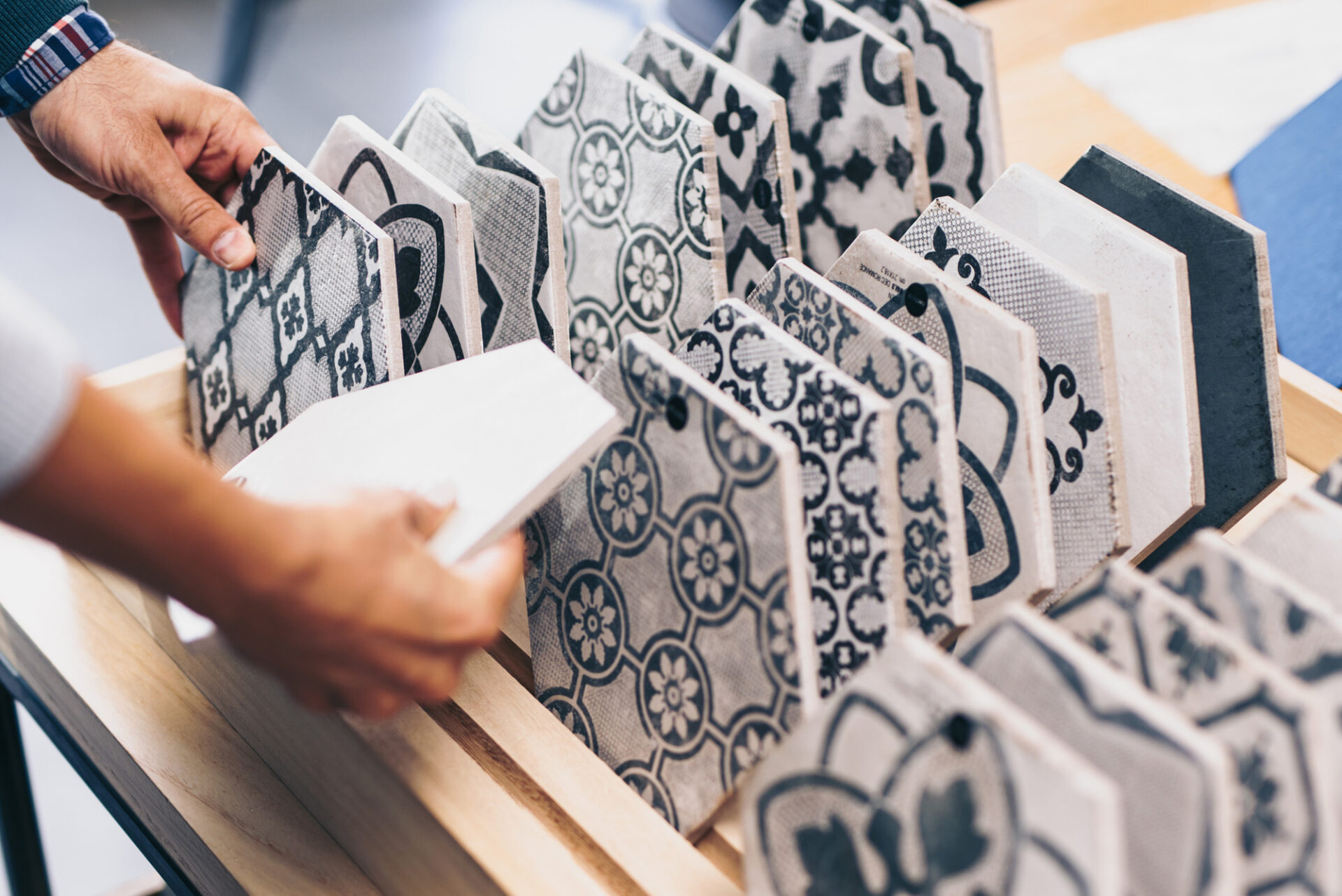
Ceramic Tile
Ceramic tiles offer vast versatility in colors, finishes, patterns, sizes, and shapes. Whether you’re looking for a glossy style or a vibrant mosaic, they can give an aesthetic appeal to your home.
Ceramic tiles are made from a combination of clay and other raw materials, fired in a kiln at a high temperature. There are two types of ceramic tiles: unglazed and glazed. Unglazed ceramic is only considered water-resistant because of its slightly porous properties. This means small amounts of water can seep into the tiles if spills are not wiped up promptly.
On the other hand, glazed tiles are waterproof because the liquid glass coats them with a smooth, glossy surface.
Recommended Rooms
Unglazed and glazed ceramic tiles are great for kitchens, bathrooms, laundry rooms, and mudrooms.
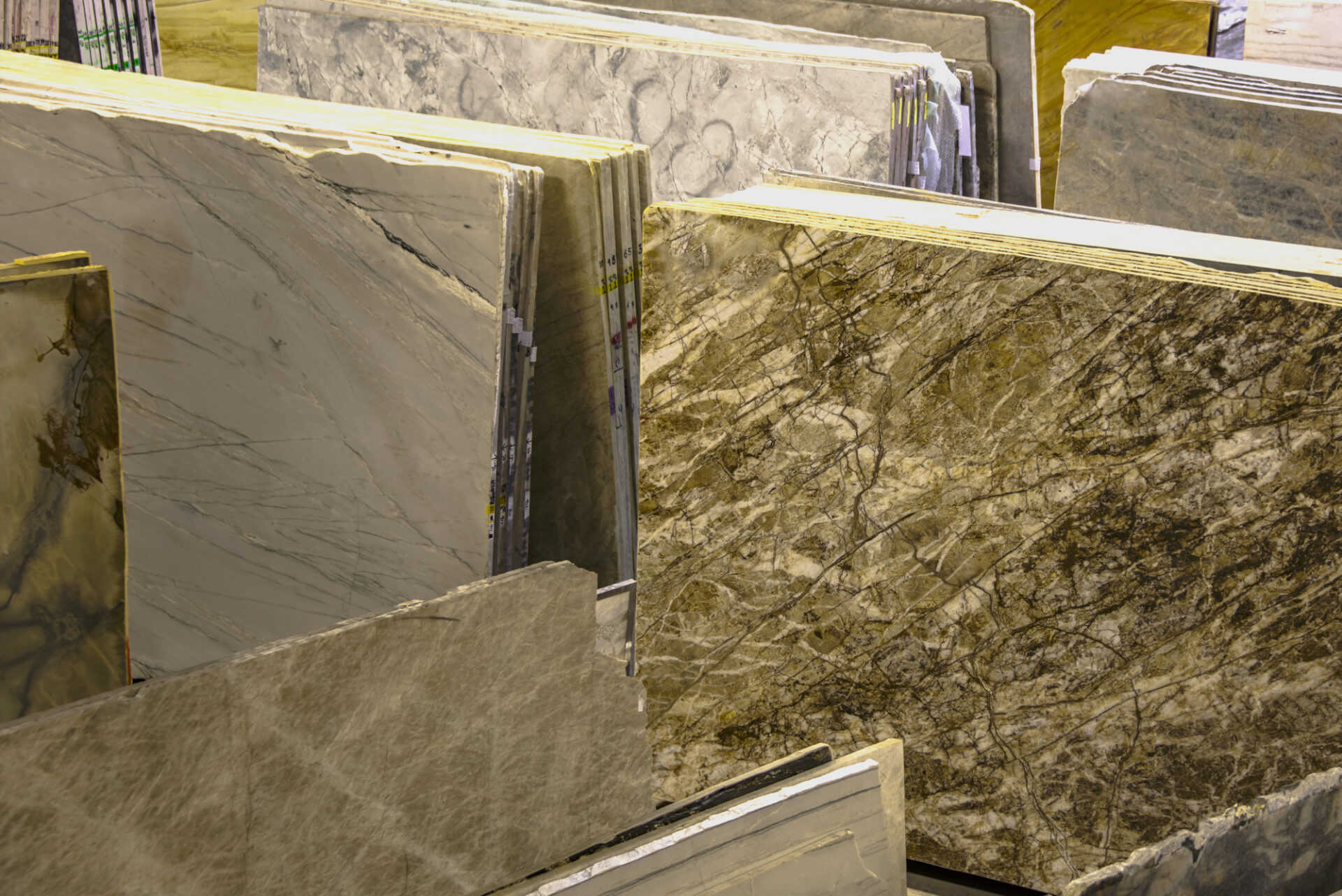
Natural Stone
Natural stone tile offers a remarkable aesthetic and timeless elegance for any room. In addition to its classic beauty, this high-quality material is incredibly durable. It’s hard and dense, making it resistant to scratches, chips, and stains.
Sourced from marble, granite, or slate, natural stone is cut into slabs and polished to the desired finish.
Due to its porosity, natural stone is not waterproof on its own. To make it water resistant, apply a sealant or glaze to fill its pores. Sealants or glaze should be reapplied regularly to prevent water damage.
Recommended Rooms
When sealed, natural stone is a reliable choice for kitchens and bathrooms. It’s also a fine choice for high-traffic areas of the home, like hallways and living rooms.
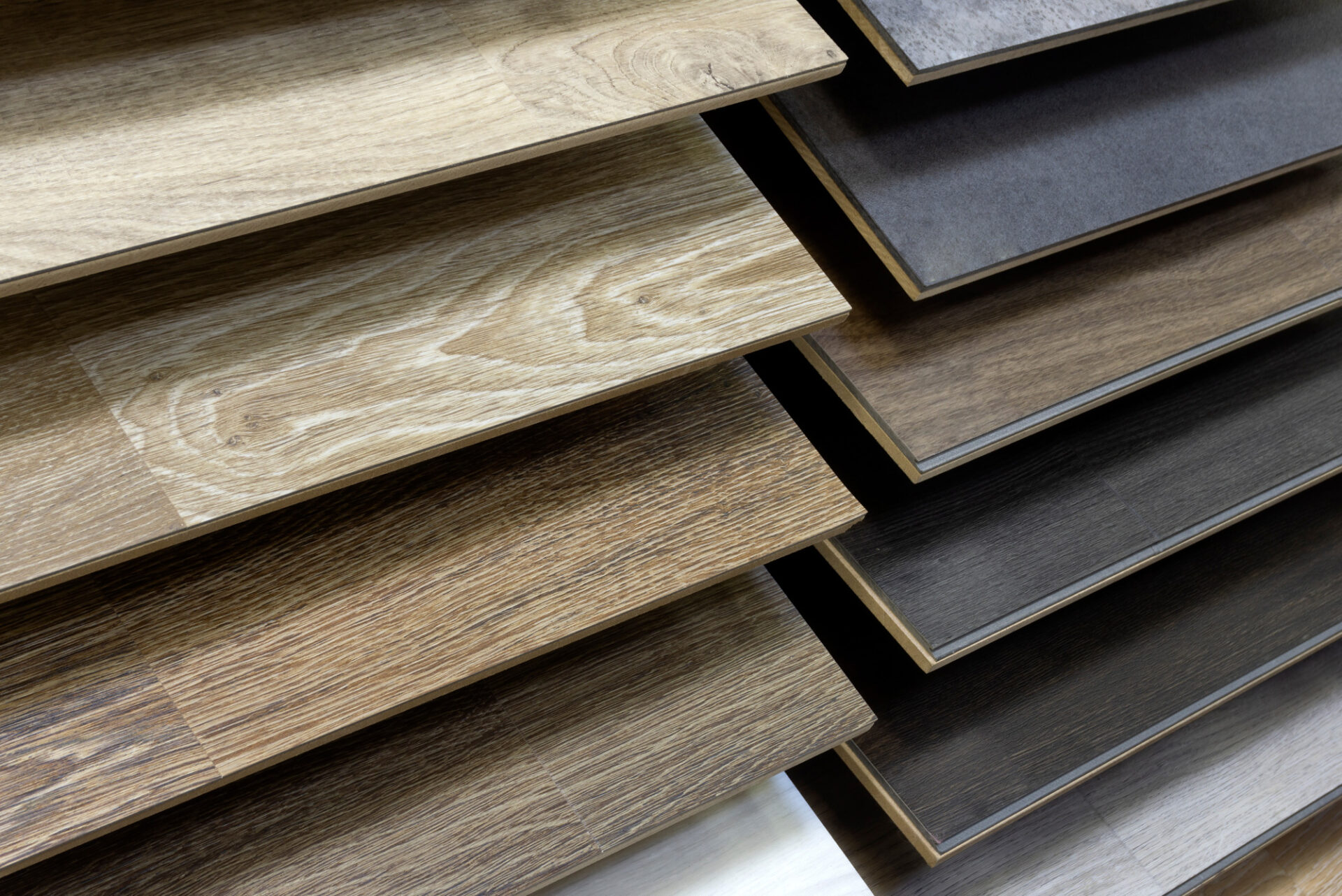
Laminate
Laminate flooring is often designed to look like wood but can resemble marble, ceramic, or stone. It’s cost-effective, durable, and scratch-resistant.
Laminate flooring is a multi-layer synthetic material. Most laminate begins with a particleboard or fiberboard base on a backing layer. A pattern (or decorative) layer is above the base, and at the very top is a wear layer. The wear layer is key – it protects the laminate flooring and makes it resistant to water and stains.
It’s important to note that many flooring brands claim their laminate is waterproof. However, no laminate flooring is 100 percent waterproof. Still, laminate is an excellent flooring choice if spills and splashes are cleaned quickly.
Recommended Rooms
Laminate flooring works well in damp rooms, like kitchens and bathrooms, as long as water doesn’t seep between the seams. Because it’s durable, it also does well in high-traffic areas, such as living rooms, foyers, and hallways.
What is the Difference Between Waterproof and Water-Resistant Flooring?
Waterproof and water-resistant flooring offer different levels of protection from liquids and moisture. Waterproof flooring is completely repellant and can withstand water for a prolonged amount of time without seeping into the material. On the other hand, water-resistant flooring cannot handle extended water exposure and is more susceptible to damage.
Each flooring type, whether waterproof or water-resistant, has its own qualities. Research materials before installation to ensure the utmost satisfaction with your choice.
Kitchens by Oaks: Quality You Can Trust
At Kitchens by Oaks, we’re here to help you with all your kitchen and bathroom flooring needs. Book a complimentary consultation with one of our expert designers to decide what type of flooring is best for you. We’ll discuss all the aspects of your project so you choose the perfect style and functionality for your home.

